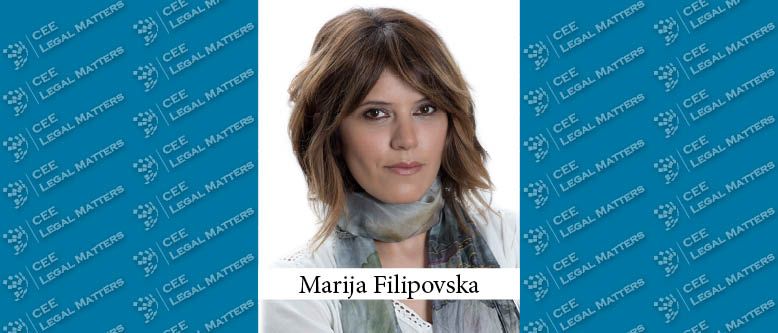Like many countries in the region, 2020 in North Macedonia’s was an election year, and the recent formation of its new government, according to CMS Partner Marija Filipovska, “hopefully heralds a bit more stable of a period to come.” According to her, “the newly elected government is strongly pro-EU and is also very vocal in favoring Western investment” which she believes could “create a stable environment in which FDI can flow stronger if (the government) is doing their job.”
Filipovska says that the predictions for negative growth in the country made by the World Bank, commonly put at around 4.1%, may be “a bit too optimistic,” as the North Macedonian government has projected “a 4.4% drop.” She says, “I’m afraid we will have to wait until 2021 to see what will happen – most predictions could be subject to rapid change depending on the course of the pandemic.” She adds that, although North Macedonia is not highly dependent on specific markets (as Greece or Croatia are dependent on tourism, for example), the economic impact of the pandemic is obvious. She also reports that in an effort to “hedge its bets” the new government has recently started “sending out messages of being open to different kinds of investments, from different regions – including China and Asia.” According to her, “it will be most interesting to see if the government continues to pursue this angle in the future, as such markets appear to be strong and have the tendency to grow.”
Filipovska reports that there has been little new legislation recently beyond that related to the COVID-19 crisis. “We have had an update to our Data Protection Act,” she says, “in an effort to emulate the GDPR, as well as some further fine-tuning to the renewable energy framework – but most of the changes and updates have either stopped or have severely slowed down due to the crisis.” Still, she says, a new Labor Law is in the pipeline, although it has “dragged on in certain legislative procedures far more than needed – likely due to the coronavirus as well.”
Filipovska says that the past few years have seen more of ”traditional investments and transactions.” According to her, "we are closely following the banking system, as the EBRD has expressed the need for the consolidation of the banking market in their Transaction Report for 2018/2019."
Finally, Filipovska says that the North Macedonian market as a whole has “changed a little bit, in terms of trends over the last year," and she notes that “several large, global IT companies are expressing their interest in local software/IT companies and exploring the local IT market." According to her, "this trend has not been very strong, but it has been remarkably consistent, even with (or helped by) the pandemic.” This is good news, she believed. “We at CMS are very excited about this trend, as we have regionally developing teams, policies and software for full support of IT companies and startups."
In addition, she says, there has been an increased interest in investing in and developing solar and wind energy. “North Macedonia is one of the countries in Europe that has the most sunshine hours per year and is also positioned geographically in such a way that it could use wind-power to a far greater extent than it does," she notes. "I’m very pleased to see that more interest has been expressed by foreign investors in this regard."
